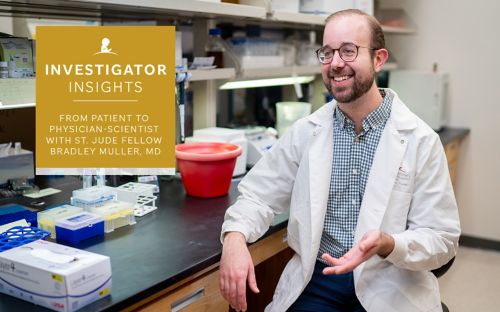The emotional toll of pediatric oncology

“Finding Grace in Grief” is a reminder that we are shaped by our patients and that they give more to us than we could ever hope to give to them.
Before I was a doctor, my mentor was a pediatric oncologist. One day, as we walked away from a newly diagnosed family, I asked her, “Does it ever get easier?”
“The day it does,” she replied, “is the day I quit my job.”
Nobody becomes a pediatric oncologist because it is easy. For starters, it takes 26 years of training and standardized test-taking.
But when people say, “I just don’t know how you do it,” they are not referring to the classwork. What they worry about, and what I asked my mentor about years ago, is the emotional toll of taking care of children with life-threatening illnesses. Yet, those poignant and passionate moments are exactly what drew most of us to this career in the first place.
We chose medicine to help people. We chose pediatrics for the creativity, the joy and the play. We chose oncology for the challenge, the science and the deeply human connection. The great privilege of this career is sitting with families on the best and worst days of their lives. What physicians talk about less frequently, however, is that those are not just days in their lives, they are days in our lives.
I wrote Finding Grace in Grief on one of those days.
“Amy” was the first patient I cared for from the moment of her diagnosis through her last breath. On the day she died, my heart broke. I needed a place to work through my feelings. We all have different coping mechanisms. Some people bake, make music or create art. I run and I write. Stacked on a shelf in my house are decorative journals filled with notes, emotions and milestones. In an age of increasing technology, that shelf has spilled onto my laptop as obscurely named folders and lone word documents. I write to mentally and emotionally process my best days and worst days, and I have done this for as long as I can remember.
Before it had a title, Finding Grace in Grief allowed me to honor Amy, to be present with my own family and to continue to provide care for my living patients. Immediately after I wrote it, it went on the shelf, having served its purpose. Months later, a colleague spoke vulnerably about his experience losing a patient – and I shared my story.
A piece that started as a reflection on my experience with an individual patient became about a universal human connection. As care providers, we sometimes forget, or resist acknowledging, the bi-directional nature of caretaking.
Society regards the white coat like a child sees a cape. It creates the illusion of an alter ego: a superhero or a villain, a professional, a scientist, someone with all of the answers and just the right amount of sentiment. A physical symbol of the “boundaries” taught to us as trainees and modeled by a host of more experienced physicians constantly navigating their own emotional professionalism. One of the things I’ve always liked about pediatrics is that we don’t wear white coats. Sitting in clinic, I am identifiable only by my stethoscope and ID badge – accessories that are easy to remove.
“Finding Grace in Grief ” is a glimpse of what happens when we leave the room, put down the stethoscope and take off the ID badge. It is a reminder that we are shaped by our patients and that they give more to us than we could ever hope to give to them. It is a part of the ongoing journey of one patient, one family and one provider.






